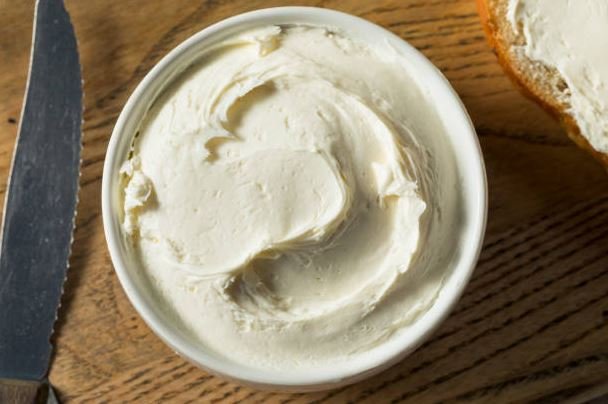Scrambled eggs are a popular breakfast dish many people worldwide enjoy. They are quick and easy to make, and their versatility allows for various additions and flavors. However, when it comes to storing scrambled eggs, questions often arise.
How long can scrambled eggs be stored in the refrigerator? Can they be frozen? Are there any safety concerns to consider?
How Long Does Scrambled Eggs Last?
Cooked scrambled eggs can be stored in the refrigerator for up to four days. To maximize freshness, transfer the eggs to an airtight container or wrap them tightly with plastic wrap before refrigeration. This will help prevent moisture loss and absorb unwanted odors from other foods in the refrigerator.
If you have a surplus of scrambled eggs or want to prepare a batch for later use, freezing is an option. However, it’s worth noting that the texture of scrambled eggs can change after freezing and thawing, resulting in a slightly watery consistency. For best results, place the cooled scrambled eggs in a freezer-safe container or freezer bag, ensuring all air is removed. They can be stored in the freezer for up to three months.
Can I Freeze Scrambled Eggs for Later Use?
Freezing scrambled eggs is possible and can be a convenient option for meal prep or saving leftovers.
To freeze scrambled eggs, follow these steps:
- Allow the scrambled eggs to cool down completely.
- Portion the eggs into freezer-safe containers or resealable freezer bags.
- Seal the containers or bags tightly, ensuring there is minimal air inside.
- Label the containers or bags with the date and contents.
- Place the containers or bags in the freezer.
Scrambled eggs can be kept in the freezer for up to three months when properly frozen and stored. However, it’s important to note that freezing may affect the texture of the eggs. After thawing and reheating, the eggs may become slightly watery and less fluffy than freshly made scrambled eggs.
What Is the Recommended Shelf Life for Leftover Scrambled Eggs?
When refrigerating leftover scrambled eggs, it’s important to ensure food safety. The general recommendation is to consume cooked eggs within three to four days when stored in the refrigerator at or below 40°F (4°C).
This guideline applies to scrambled eggs as well. To maximize the shelf life of leftover scrambled eggs, storing them properly is essential. Here are a few tips to keep in mind:
- Allow the scrambled eggs to cool down before refrigerating them.
- Transfer the eggs to airtight containers or cover them tightly with plastic wrap or aluminum foil.
- Label the containers with the date to keep track of their freshness.
- Store the eggs in the coldest part of the refrigerator, typically the back of the lower shelf.
How Can I Tell If Scrambled Eggs Have Gone Bad?
Like any perishable food item, scrambled eggs can spoil over time. To determine if scrambled eggs have gone bad, there are a few signs to look out for:
- Unpleasant Odor: If the scrambled eggs have a foul or sulfuric smell, it indicates that they have spoiled. Fresh eggs should not have any strong or off-putting odors.
- Unusual Appearance: If the scrambled eggs have changed in color, texture, or consistency, it’s a sign that they are no longer safe to consume. Look out for discoloration or any slimy or mold-like growth.
- Abnormal Taste: Spoiled scrambled eggs may be noticeably different or unpleasant. If the eggs taste off, it’s best to discard them.
Are There Any Safety Concerns Regarding Consuming Leftover Scrambled Eggs?
When consuming leftover scrambled eggs, it’s important to consider safety concerns. Eggs are a potential source of Salmonella, a bacteria that can cause food poisoning. To minimize the risk, handling and storing eggs properly is essential.
Here are some safety tips to keep in mind:
- Cook eggs thoroughly: Ensure scrambled eggs are cooked until they are firm and no longer runny. This helps eliminate any potential bacteria.
- Refrigerate promptly: Store leftover scrambled eggs in the refrigerator within two hours of cooking. Bacteria multiply rapidly at room temperature, so it’s crucial to refrigerate them promptly.
- Follow proper storage guidelines: As mentioned earlier, store the scrambled eggs in airtight containers in the coldest part of the refrigerator. This helps maintain their quality and minimizes the risk of bacterial growth.
- Discard if unsure: If you’re uncertain about the freshness or safety of the scrambled eggs, it’s best to err on the side of caution and discard them.
Can I Reheat Scrambled Eggs That Have Been Refrigerated?
Yes, you can safely reheat refrigerated scrambled eggs. However, it’s important to do so properly to maintain their quality and ensure food safety.
Follow these steps when reheating scrambled eggs:
- Remove the scrambled eggs from the refrigerator and let them come to room temperature.
- Transfer the eggs to a microwave-safe dish or a non-stick pan.
- If using a microwave, cover the dish with a microwave-safe lid or microwave-safe plastic wrap. If using a pan, heat it over low to medium heat.
- Heat the scrambled eggs in intervals, stirring occasionally until heated.
- Check the internal temperature of the eggs with a food thermometer to ensure they reach at least 165°F (74°C) to kill any potential bacteria.
- Once reheated, serve the scrambled eggs immediately.
It’s important not to reheat scrambled eggs more than once, as repeated reheating can further degrade their texture and flavor.
Is It Safe to Eat Scrambled Eggs That Have Been Left Out at Room Temperature?
No, consuming scrambled eggs that have been left out at room temperature for an extended period is not safe. Bacteria can multiply rapidly in the “danger zone” between 40°F (4°C) and 140°F (60°C), increasing the risk of foodborne illnesses.
If scrambled eggs have been left at room temperature for more than two hours, they should be discarded. To ensure food safety, it’s crucial to refrigerate perishable foods promptly.
Can I Add Other Ingredients to Scrambled Eggs Before Refrigerating Them?
You can add various ingredients to scrambled eggs before refrigerating them. However, remember that some ingredients, such as vegetables or dairy products, may affect the shelf life and texture of the eggs.
It’s best to add these ingredients just before reheating the scrambled eggs.
Can I Store Scrambled Eggs in the Freezer Without Cooking Them First?
It’s not recommended to freeze raw scrambled eggs. Raw eggs can expand and become watery when frozen, resulting in an undesirable texture after thawing. It’s best to cook the scrambled eggs before freezing them.
Are There Any Alternatives to Reheating Scrambled Eggs in the Microwave?
Yes, there are other methods to reheat scrambled eggs. You can use an oven or toaster oven to gently warm them, or place the eggs in a heat-safe container and submerge it in hot water until they reach the desired temperature.
Just be sure to monitor the temperature and avoid overcooking the eggs.
Conclusion
Scrambled eggs are a delicious and versatile breakfast option. When storing scrambled eggs, following proper guidelines to maintain their freshness and ensure food safety is important. Remember to refrigerate leftover scrambled eggs within two hours of cooking and consume them within three to four days. Freezing scrambled eggs is also possible, but it may affect their texture.
By understanding the recommended shelf life, signs of spoilage, safety concerns, and proper reheating techniques, you can confidently enjoy scrambled eggs, knowing you’re prioritizing your health and well-being.



















